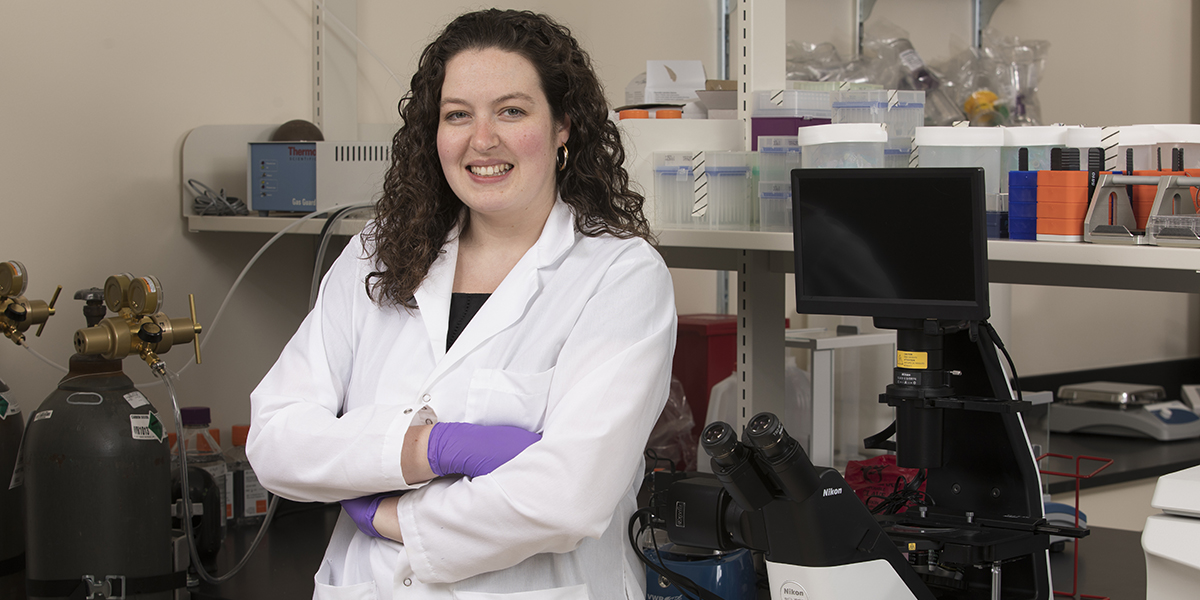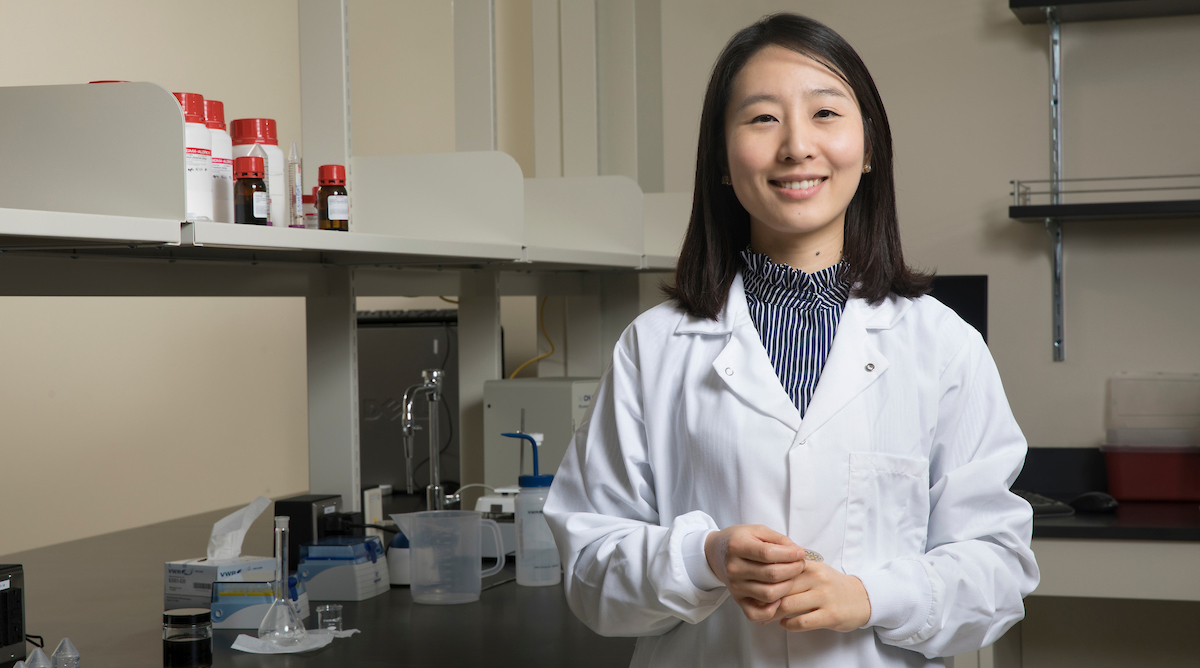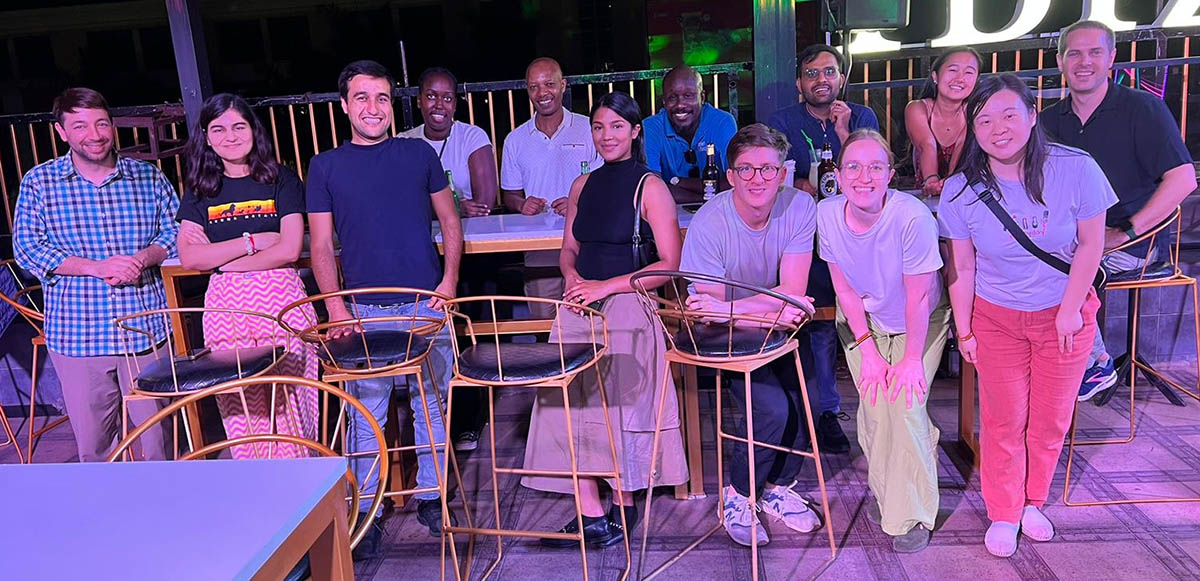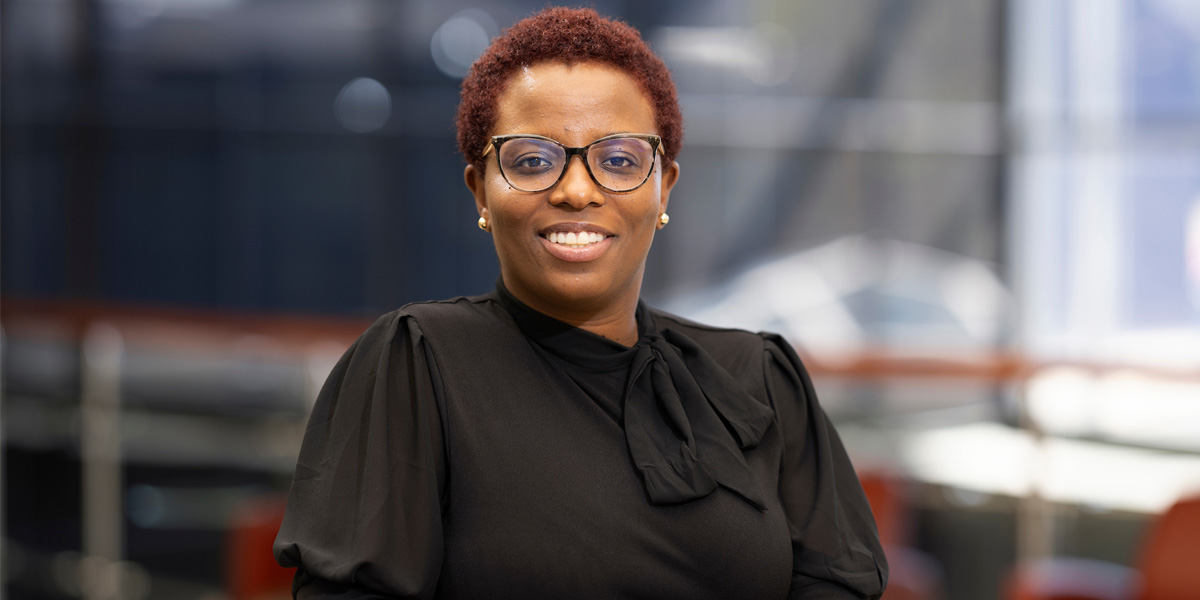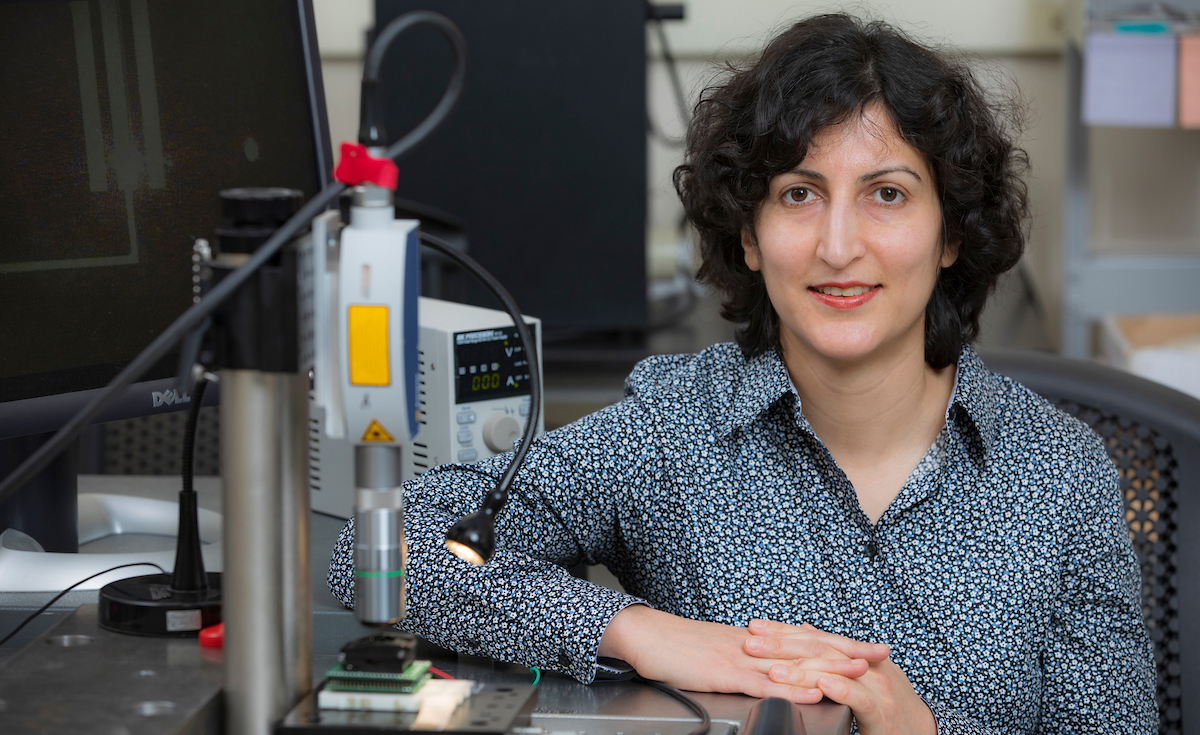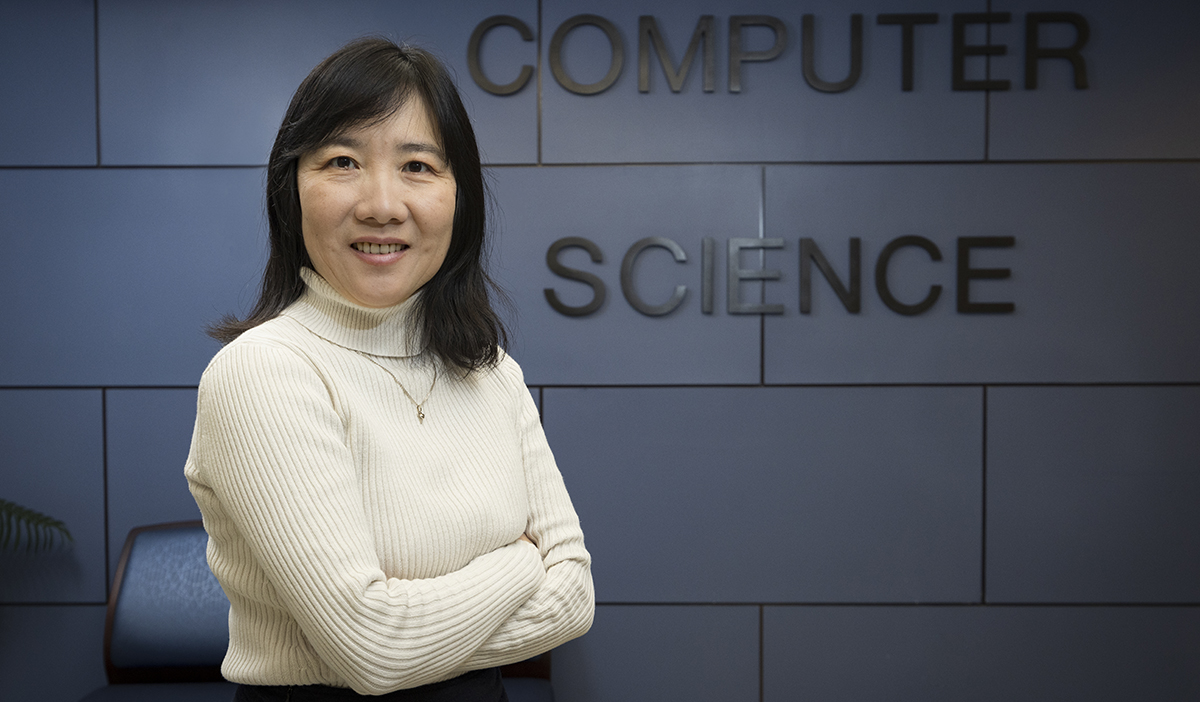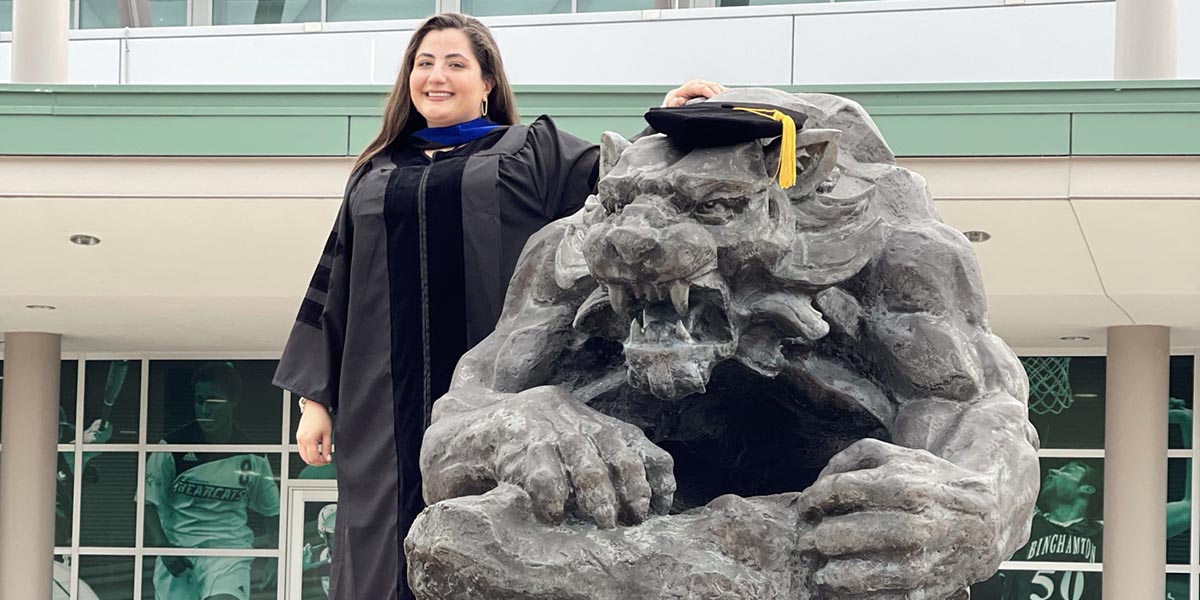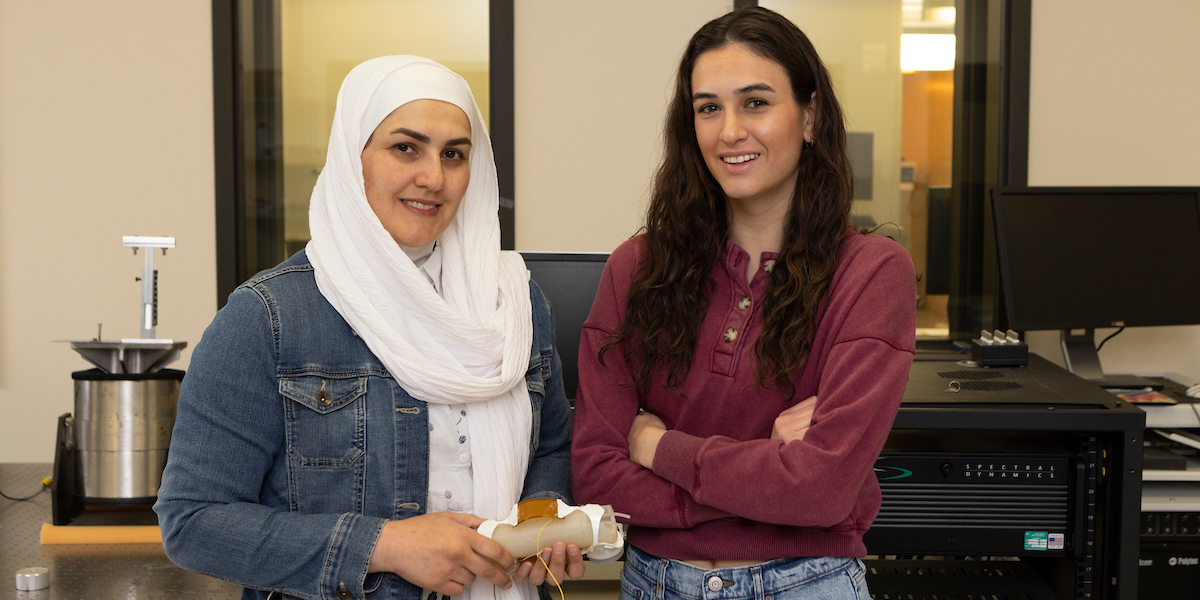10 stories about Watson College women building the future
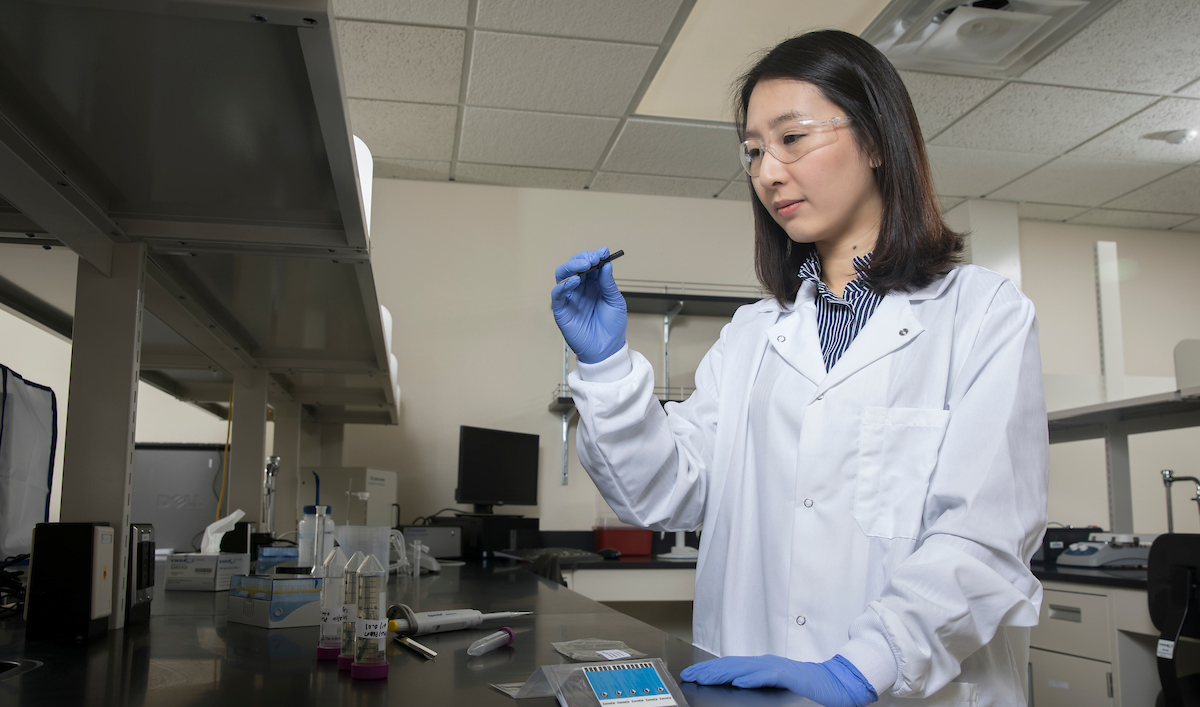
Women at the Thomas J. Watson College of Engineering and Applied Science are making valuable contributions to research and education. We honor these students, faculty, alumni and staff members on International Day of Women and Girls in Science.
Researching the mysteries of the heart (cells)
Assistant Professor Tracy Hookway has received funding from the National Institutes of Health and other sources to create 2D and 3D models of human cardiac cells and investigate their functions. In 2023, she received a five-year, $500,000 National Science Foundation CAREER Award to explore the role of autonomic neural stimulation on the function of engineered cardiac tissues.
Creating better medical sensors to improve healthcare
Associate Professor Ahyeon Koh has focused her research on creating better biosensors. From smart bandages and papertronics to sweat analysis and upcycling old CDs, Koh’s work aims to offer us real-time data that ultimately could improve our health and well-being. The key is getting that information in a reliable and consistent way. In 2023, she received a five-year, $500,120 National Science Foundation CAREER Award to fund the next phase in her endeavors.
Sharing her knowledge with women in Uganda
Nourin Haque ‘23 works at Cadence Design Systems, a leading electronic design automation and intelligent software system design company. The firm collaborates with Women in Technology Uganda (WiTU) as part of its mission to make a global impact in places where “immense talent could be stifled by a lack of resources,” as Haque puts it.
Recruiting students and ensuring their success
Carmen Jones, Watson’s assistant dean for academic diversity and inclusive excellence, has an extensive background in diversity and equity issues in recruitment, and her passion for advising students in STEM fields led to her current role at Binghamton.
Making better sensors on a microscopic scale
Professor Shahrzad “Sherry” Towfighian is leading research on microelectromechanical systems (MEMS), which are microscopic devices with moving parts often produced in the same way that electronics are. They are used in a variety of everyday devices such as accelerometers, gyroscopes, pressure and vibration sensors.
Using AI to develop precision medicine
Empire Innovation Professor Nancy Guo has been at the forefront of the bioinformatics revolution throughout her career in academia. Her goal at Binghamton is to establish a nationally recognized, multidisciplinary artificial intelligence research institute for precision medicine.
Keeping semiconductors cool and speedy
After graduating from the Mechanical Engineering Department’s doctoral program, Ghazal Mohsenian, MS ’20, PhD ’22, secured a permanent spot at Intel Corp. working on electronic cooling packaging for semiconductors.
Blazing a trail in mechanical engineering
Sara Aghazadeh, MS ’23, and Jessica Abreu ’23 are among the increasing number of women who are pursuing degrees in mechanical engineering at Watson College. As more female students pursue engineering degrees at research universities, there is hope that mechanical engineering will continue to be more gender inclusive.
Improving the patient experience using AI
Doctoral students Vision Wang and Grace Babalola worked with fellow student Samer Abubaker and Assistant Professor Stephanie Tulk Jesso to design an artificial intelligence chatbot to improve patient experience at United Health Services (UHS). The patient-facing chatbot recognizes complaints and can respond in natural language.
Developing delivery drones to bring your orders to you
Beth Flippo ‘99 is CEO of Drone Express, which utilizes last-mile drones that can pick up an online order from your local store and drop it off at your location in a matter of minutes. Drone Express is currently flying deliveries near its home base of Dayton, Ohio.

